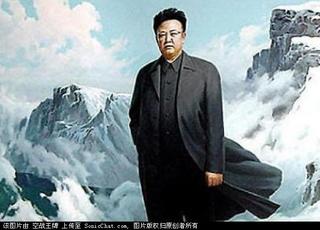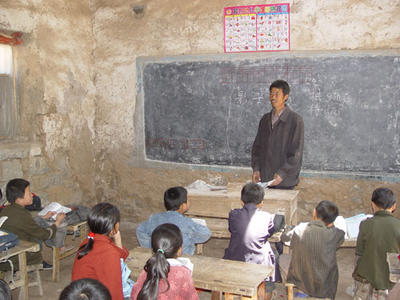南方周末:三十五年前华人精英的保钓梦
一次不为人知的华人精英运动
陈省身、杨振宁、丘成桐、何炳棣、田长霖、吴家玮、林孝信……这些名字几乎无一例外地拥有着教授、院士、科学家、实业家、作家等耀眼的头衔,可谓是当之无愧的华人精英。
但很少有人知道,35年前,他们曾经共同参与了一次保卫钓鱼岛的运动,并被这场运动所改变
□本报记者 朱红军
7月13日,何炳棣近乎嘶哑的声音通过越洋电话传来——“不会忘记,怎么会忘记?”因为听力渐失,他的声音如同呐喊。
88岁的何炳棣是当今史学界的泰斗,美国亚洲研究学会迄今惟一的华裔会长。在这个7月的美国南加州寓所里,他常常为思绪回到35年前的“保钓”运动而彻夜不眠。
7月的中国媒体,纷纷在转载一条消息:7月5日,一份公开谴责李登辉关于“钓鱼岛属于日本”媚日言论的声明,由200多名“老保钓人士”联合签名,其中以杨振宁先生为代表。
经记者查证,这条“新闻”原来是2002年的一条旧闻。之所以在今年突然又浮出水面,也许与中日关系目前的形势有关。
不过,声明中对于“老保钓”的提及,却让一场发生于35年前的海外“保钓”运动重入公众视野。
一次精英知识分子的政治运动给参与者们留下了什么?在35年过去后,他们的命运有几多变迁?《南方周末》记者用一个多月的时间,在美国、在香港、在台湾、在北京,追寻那段不同寻常的岁月。
而几天后的8月9日来自台湾、香港、美国和北京的30余位老“保钓”将齐聚西藏拉萨包括林孝信、刘虚心、林盛中、张信刚等人除了叙旧之外他们还将对两岸关系及中国统一的问题进行讨论。
激情燃烧的岁月
这是一段参与者们极为珍视的历史。
在香港,著名的华裔数学家丘成桐,不顾刚从美国长途而来的劳累,在演讲的间隙,为本报记者腾出了近一小时的采访时间,他说,找不到拒绝的理由。丘成桐是数学界诺贝尔奖——菲尔兹奖惟一的华裔获奖者,这是近30年来他对国内媒体首度公开自己的那段历程。
香港城市大学校长张信刚,远在新疆出差时就敲定了一周后的采访日程,他的秘书对本报记者说,“从来没见校长对一个采访如此重视!”
中国工程院院士李椿萱,至今珍藏着一叠名为《水牛》的“保钓”运动杂志,留学归国的20余年里,他几易居所,但杂志一直保留。
而他们追忆的那段历史,都要从一本名为《钓鱼岛须知》的小册子开始。
1970年底,来自普林斯顿大学的这本小册子传到了伯克利的校园,加州大学伯克利分校一直以来都是美国自由传统相对盛行的校园,且港台留学生相对较多,这里后来成为“保钓”运动最活跃的地方。这本小册子重点提到了钓鱼岛问题背后隐藏的日本对于石油和天然气资源的争夺,并且从地理、历史、海洋法等方面阐释钓鱼岛主权隶属于中国的事实。
之前一年,美日联合公报决定:将琉球于1972年5月15日“归还”日本,其中包含了历来属于台湾的钓鱼岛。
几乎与《钓鱼岛须知》四处传播的同时,1970年底,又出现了“冲绳县警察局将钓鱼岛上青天白日旗拔下撕毁,并将台湾渔船驱逐”的事件。
这深深刺激着在美中国留学生的家国观念和民族底线。1970年12月19日,普林斯顿大学沈平、李德怡等人拍案而起率先组成了“保卫钓鱼岛行动委员会”(以下称“保钓”会),强调以行动“警告日本”、“抗议美国”、“呼醒国人 ”。
当时没有网络,甚至电话也不普遍,《钓鱼岛须知》小册子依靠林孝信和他创办的《科学月刊》网络得以迅速传播。当时的林孝信在芝加哥大学读物理专业博士。在他的努力下,1970年,凡有50个留学生的地方,就有《科学月刊》的联络员。
以不可想象的传播速度,短短两个月间,至1971年初,“保钓行动委员会”几乎遍及全美各地近60所高校。
现任香港城市大学校长的张信刚彼时正在布法罗纽约州立大学做助理教授,“偏居一隅”,在一次偶然的会谈中获悉 “保钓”运动的信息。第二天,学校里已经贴出了保卫钓鱼岛的海报,几天后“布法罗纽约州立大学‘保钓’委员会”已经成立。
那一年,加州伯克利分校的丘成桐才22岁,在恩师陈省身的指导下,博士论文接近完成,后来奠定其在数学界地位的卡拉比猜想也才刚刚接触。
当时的美国校园正沉浸在反越战运动的持续激情之中。老师陈省身谆谆告诫自己的弟子,一切以学业为重。
但当“保钓”运动的浪潮裹胁而来时,年轻的丘成桐并没有遵从师命。当时的运动骨干、作家刘大任依然记得,在筹备酝酿“保钓”游行期间,总有一个沉默寡言的青年,不辞辛劳,逢事必到,搬凳子,发传单。他不曾料到,仅仅十余年后,这位青年居然摘取了菲尔兹奖——数学界的诺贝尔奖。34年后丘成桐先生坦陈这段经历,对本报记者说,“当时我并不是领袖,却也投入了全部的精力,受益良多。”
两次大游行未能奏效
1970年前后的美国校园,中国留学生主要来自香港和台湾,大陆因为尚未开放,鲜有留学生赴美,总计人数近万人。
当时,港台留学生对于台湾当局普遍持有两种态度:激烈的反对和相对平和的改良,由这两种态度而派生的对于中国大陆的情感,也既有向往,亦有疏离。
因为钓鱼岛的归属关系中华民族的荣辱,留美学生中的不同政治立场得以共归爱国主义的大旗之下。
1971年1月29日,北加州金山湾区9所高校的500名留学生在伯克利分校的呼吁下,自发集结在旧金山市,掀起了“保钓”游行示威活动。时间定在1月29日,暗合当年的“12·9”爱国学生运动。
香港理工大学刘佩琼教授至今记得,当天阳光明媚,她和加州州立大学的同学们天没亮就坐着两辆大巴赶至旧金山。游行队伍从圣玛丽广场出发,沿路经“台北派驻旧金山总领事馆”以及日本领事馆,并向当时的“总领事”周彤华递交了呼吁台湾当局捍卫领土主权的请愿书。
丘成桐则对记者说,他在游行中亲眼目睹身边的朋友被不明分子袭击,“眼镜都被打破了”。事后他才知道,几乎在同一天,纽约市、芝加哥、西雅图和洛杉矶均发生了类似的留美学生“保钓”游行。
“保钓”的浪潮正以不可遏止的力量激荡着美国校园的每一个角落。
但“1·29”游行之后,台湾当局并没有及时作出积极回应,当局在钓鱼岛问题上的暧昧态度和软弱举措,再度催生了更大规模的华盛顿“4·10”大游行。
1971年4月10日,华盛顿是属于中国留学生的世界。华府宪法大道与二十三街的广场上,来自全美三十余所高校,17个地区的近4000名留学生、华侨齐聚于此。“保钓”运动达至高潮。
张信刚为了参加这场游行,丢下待产的妻子和尚在襁褓中的女儿,连夜开车,从布法罗奔赴华盛顿。更多的留学生从罗德岛,从密歇根,不惜十几个小时的夜车赶至,甚至加拿大“全加中国同学联会”亦风尘仆仆赶到。
游行队伍浩浩荡荡,高唱《毕业歌》、《黄河大合唱》。威斯康辛大学学生甚至自创了“钓鱼岛战歌”,留学生满含热泪,振臂呐喊“中国,站起来,起来!”
时任约翰·霍普金斯大学教授的钱致榕在日本使馆前登高一呼,慷慨陈辞,以吴三桂引清兵入关的历史典故痛斥拱手交让钓鱼岛为汉奸卖国之行为,场下掌声雷动,34年后,每忆及此,钱教授澎湃依旧。
历经半年的激情之后,“保钓”意识虽然在留学生心中扩散,但“保钓”行动却没有造成任何现实上的改变,台湾当局鲜有动作。留学生们越发意识到,钓鱼岛问题的彻底解决必须仰仗于中国的真正强大,而两岸分裂的状况让他们更为深入地关注到中国何去何从的问题上,“保钓”运动开始从最直接的钓鱼岛问题延伸至两岸统一的讨论上。
“4·10”游行结束不久,1971年的秋天,博士毕业的丘成桐去了普林斯顿大学工作,他又积极参与了该校的国是讨论会,“每星期一次,我几乎都去,算是比较积极的一位。”他不喜欢发言,总是在一旁倾听,“知道了许多关于新中国、两岸关系的事情”,“两岸统一”成了经常闻及的词汇。
1971年9月安娜堡国是讨论会在密歇根大学召开,全美高校的100余名“保钓”精英齐聚一堂,就“保钓”行动的发展方向出谋划策,议题渐渐从单纯的爱国保土集中于促进两岸统一之上,这成为“保钓”运动具有分水岭意义的一幕。
- 链接1
本报记者寻访的“保钓”精英(部分)
杨振宁诺贝尔物理学奖获得者;纽约州立大学石溪分校讲座教授,83岁,现居北京
何柄棣台湾中央研究院院士/芝加哥大学荣退讲座教授,88岁,现居美国
丘成桐哈佛大学讲座教授,数学费尔滋奖——数学界的诺贝尔奖得主,56岁,现居美国
田长霖(前加州伯克利分校校长,已逝)
蒲慕明(台湾中央研究院院士;美国加州大学教授,58岁,现居美国)
沈君山(台湾清华大学前校长,72岁,现居台湾)
吴家玮(香港科技大学创校校长,68岁,现居美国)
张信刚(英国皇家工程学院外籍院士,香港城市大学校长,65岁,现居香港)
陈治利(从商,68岁,现居美国)
林盛中(中国地质科学院矿床地质研究所研究员,台盟中央前主席,63岁,现居北京)
李椿萱(北京航空航天大学教授,中国工程院院士,66岁,现居北京)
苏纪兰(国家海洋局第二海洋研究所教授,中国科学院院士,70岁,现居杭州)
林孝信(《科学月刊》创办人;台湾社区大学促进会常务理事,)
刘佩琼香港理工大学教授,全国人大代表,60岁,现居香港
- 链接2
部分已逝“保钓”精英名单
许泰和
陈恒次
蔡诗东
王浩
章苏民
林碧碧
鲍永平
陈挹芳
廖秋忠
张晓春
孟仪正
任之恭
王国祥
胡家缙
李福祥
许金珠
袁葆生
陈毓祥
郭松芬
……
华裔学者的身影
“保钓”运动甫一开始即以“第二次五四运动”自况,甚至打出了“外抗强权,内除国贼”的口号以作比照。
连续两次的游行示威让美国的新闻媒体对于一向沉默的中国学生的印象为之一变,而
真正让他们开始关注到游行示威背后所蕴藏的巨大国家力量,则更多地依仗当时已近功成名就的著名华裔学者。
“4·10”华盛顿游行后,各地“保钓”成员合捐6万美元在 《纽约时报》上刊登了一整页的大广告,表明钓鱼台列屿应是中国的领土,是为留学生就钓鱼岛问题向美国社会的公开抗议。
著名数学家陈省身当时正在加州伯克利分校做教授,在留学生们的再三邀请下,挺身而出,为首签名发出了一份告美国政府公开信,阐述钓鱼岛问题的实质,呼吁归还中国。
丘成桐多少有些惊讶,他说,“老师素来用心学问,也不很支持学生上街游行,陷于运动热潮,常常劝我们学业为重,这才是爱国之正途。”
“4·10”游行结束后不久,张信刚回到布法罗的纽约州立大学,办起了钓运杂志《水牛》,现中科院院士李椿萱是积极的参与者之一。这是一份纯手抄杂志,李椿萱回忆说,“杂志宗旨为启蒙,主要是介绍新中国的现状和建设成就,阐释社会主义理论,偶尔也会刊发一些散文、诗歌等感性文字。”《水牛》每期从两三百份稳定升至五六百份,开始在当时全美数十家类似的钓运杂志中脱颖而出。编辑部开始收到一些鼓励的信笺和捐款,主编张信刚意外地从支持的来信中发现了田长霖教授和吴家玮教授的名字。
田长霖,前加州大学伯克利分校校长,美国首位亚裔校长,彼时正是伯克利分校热系统工程系系主任,领导着18位教授。行政研究工作之外,他不顾个人利益,站在旧金山中国城的花园一角慷慨陈辞,公开批评台湾处理“保钓”的态度。事后因之被列在了台湾当局的黑名单上,将近十年的时间不能回台湾,更是多次被排挤在“中央研究院”院士名单之外,台湾方面在提到他时,都以“××教授”称呼。
而前加州州立大学旧金山分校校长吴家玮教授当时已在美国西北大学任教,他对本报记者回忆说,自己当时相对冷静,没有参与上街游行,但一直在背后支持学生们办杂志、开研讨会的行动,多次捐款,甚至投稿。当时他正积极参与《科学月刊》的编辑,大量撰写科普和时势分析文章,试图启迪民智,呼吁理性,“其实也在以另一种方式参与运动。”
30年后,这3位因“保钓”而纸上相遇的教授,如今都以华人圈里最有名的大学的校长形象被记忆。
芝加哥大学教授何炳棣先生,当时年过半百,但仍激情洋溢。“我选择了以我的特长来支持学生运动,就是以演讲和著文的方式为‘保钓’运动鼓呼。”
“保钓”运动期间,何炳棣先生发表演讲不下四五十次,尤其在后期钓运向两岸统一运动的转变中功不可没。1972 年,他访问祖国后写就的《从历史的尺度看新中国的特色与成就》一文,被留学生广为传抄,30年后依然被诸多“保钓”学生啧啧提起。
何炳棣多次提及与杨振宁在“保钓”中的合作,并引用当年台湾当局口中的“杨匪、何匪”自况。作为海外华裔科学家访问新中国的第一人,杨振宁1971年甫一回美,即应“保钓”学生的邀请,穿梭在全美各高校演讲,以所见中国不屈不挠之精神示于学生,感染了一批热血青年立下报国之念。
本报记者多方努力终获得杨振宁当年的数千言演讲辞,这篇名为《我对中华人民共和国的印象》一文里,杨先生从他所见的上海女性穿裙子,讲到科研事业、文化传统,无往不包,最后以“为有牺牲多壮志,敢教日月换新天”来作喻新中国气象之变化。
著名华裔数学家丘成桐忆及往昔,认为“这场‘保钓’运动,更重大的意义在于,当时的中国是不开放的,而它打开了一扇窗户,让我们海外学子了解中国”。
吴仙标是目前为止海外留学生竞选美国副州长成功的第一人,也是惟一的一个人;他还是美国有史以来第一个竞选联邦参议员的华裔。
1971年,吴仙标发起组织的“德拉瓦州保卫钓鱼台(注:台湾地区称为钓鱼台)委员会”编印了一本关于钓鱼台的小册子,说明钓鱼台的历史和领土主权,并分发给联邦参议院外交委员会的所有成员。
此间,他还先后访问了4位联邦参议员、30多位联邦参议员的智囊班子主要成员,在“喝啤酒”、“喝咖啡”中,不知不觉地向这些人灌输钓鱼台属于中国领土的观念。
这些最著名的华裔精英无一不在关键时刻,站在关键位置上踢了“临门一脚”。
南方周末:三十五年前华人精英的保钓梦(3)
--------------------------------------------------------------------------------
http://www.sina.com.cn 2005年08月04日10:41 南方周末
周恩来总理接见“保钓”人士
1971年9月中旬的一个深夜,伊利诺伊大学研究生陈治利突然接到电话,“是东部李我焱打来的,说要组团回中国参观,征求有居留权、学业不致受影响的人加入”。
陈治利与李我焱后来均成为“海外保钓第零团”的成员。
原来,1970年肇始的海外“保钓”运动在近一年的风起云涌后,引起了新中国的高度关注。尤其是1971年4 月10日华盛顿大游行后,举世震惊,新中国政府公开声援海外学子的爱国义举。四天后,《人民日报》(1971年4月24 日第六版)率先对此事进行详细报道;5月1日《人民日报》发表评论员文章《中国领土主权不容侵犯》表示,广大海外侨胞正在纷纷掀起的维护民族主权的爱国正义运动,“将获得祖国人民的坚决支持”。
但囿于之前中美关系的冷淡及两岸的敌对态势,这场“保钓”运动的具体情况和信息一直无法畅通地传递至大陆,迫切需要搭建一道沟通的桥梁。而1971年下半年,海外“保钓”运动在最初游行示威的激情过后,也进入了反思和总结阶段,取而代之的是各地留学生竞相开展的国是讨论会,议题也渐深入至中国前途的讨论上,促使两岸统一成为许多留学生的共同选择。这一年9月的安娜堡国是大会上,“去新中国看一看”成为许多与会者热切的愿望。
开完这次大会几天后,当时的全美“保钓”运动委员会总召集人李我焱,获悉了中国政府拟邀请海外“保钓”学生组团访问祖国的信息。这一口讯是当时新成立的中国驻加拿大大使馆委托李我焱的同学伍经元传达的,对外名义是参加1971 年的国庆观礼活动。
其时美国还未完全承认新中国,但两国关系已经有所缓和,美国刚刚通过一议案,允许美国公民去中国大陆旅游,这成为访问团顺利成行的利好背景。“之所以需要永久居留权,大概是为了万一出现意外,团员依然能够回到美国。”李我焱回忆说。
陈治利在征得妻子同意后,又主动推荐法学院的陈恒次同学参加,陈恒次得以成为访问团里惟一的台湾本土籍留学生。 加州伯克利分校的刘大任等人也接到李我焱的电话邀请,在与朋友的一番深思熟虑后,他选择了放弃,理由是“条件尚不成熟,避免不必要的麻烦”。
最终成行的访问团一共五人,李我焱为团长,四位团员分别是陈治利、陈恒次、王正方和王春生。“这五人均来自台湾,基本都是‘保钓’运动各个地区的联络人。”陈治利说。
9月底。出发前夕,五人特意经纽约参加支持中国重返联合国的集会,并在旅途中传来中国重返联合国的消息。访问团群情激昂,“这是一次名副其实的破冰之旅。”34年后的今天,陈治利提及往事依旧难捺激动。
1971年的国庆前夕,由海外“保钓”运动的五位骨干成员组成的“保钓访问团”第一次踏上祖国大陆,其间一场与周总理的倾谈,从深夜至次日凌晨,整整持续了6个小时。基于当时的两岸形势,这次访问自始至终,“不上报纸,不拍照片”,成为一段被尘封的历史片段,也被参与者戏称为“保钓第零团”。
返美后不久,访问团团员在各地留学生的要求下,四处演讲,陈恒次和陈治利两人,更是开着一辆破旧的老爷车,在中西部、南部学校间穿梭,将他们在国内的所见所闻,义不容辞地告知大家。
不久之后,李我焱响应周总理的号召,经联合国考试录取到联合国秘书处工作,“人生一下子发生了重大的转折”。而受访问团演讲的影响,去往联合国工作以作报国之途的留学生共有80多人,“他们几乎都有博士硕士学位,大多是放弃自己的专业,改而从事语文工作,并不计较个人得失。”
“保钓第零团”的访问成功,开通了海外学子与祖国定期沟通的渠道,其后1972年、1975年,“保钓”第一团、第二团,接连循着他们的足迹,跨过大洋。张信刚参加的是1972年的第一团。当时周总理不管多忙,总是尽量亲自接见这些海外归来的学子,进一步增强了他们对于新中国的认同感。
不过,事实上从1971年9月安娜堡国是讨论会在密歇根大学召开开始,“保钓”人士“政治立场的分歧开始显现,有些人选择了退出,有些人更加执著”。参与此次讨论会的刘大任向本报记者回忆道。
至1972年5月15日,美国依旧对外宣布,遵循《美日联合公报》如期将钓鱼岛的托管权交予日本,轰烈一时的保钓运动遭遇挫折,陷入低谷。
more

















